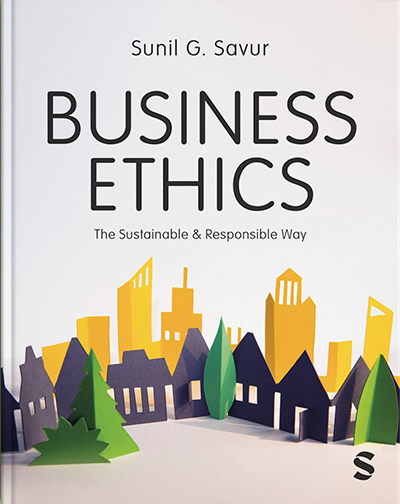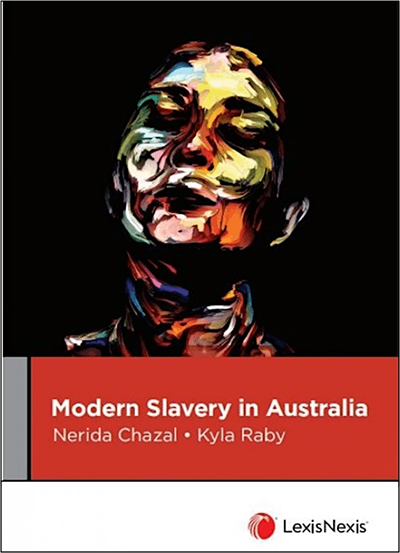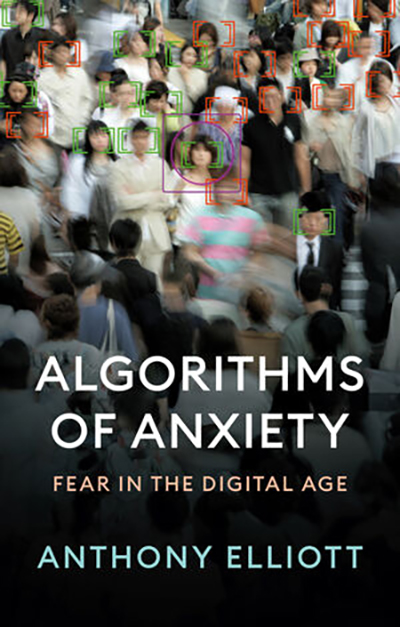The latest books from UniSA researchers
- Business Ethics: The Sustainable and Responsible Way
- Modern Slavery in Australia
- Algorithms of Anxiety: Fear in the Digital Age
Business Ethics: The Sustainable and Responsible Way
By UniSA Business Ethics researcher and lecturer Sunil G. Savur

Business Ethics: The Sustainable and Responsible Way provides a fresh, contemporary, and hands-on approach to business ethics, emphasising practical skills.
This practical approach is supported through a rich array of short and long case studies from across the globe, including countries such as the UK, Australia, the US, India, China, Nigeria and Ghana. Cases feature companies such as Patagonia, the Aravind Eye Clinic, Merck and LEGO and examine topics such as the gig economy, fast fashion, electric vehicles, artificial intelligence, and space exploration. Accompanying questions also encourage reflection and the skills needed to apply theory to real-life scenarios.
This textbook is suitable for undergraduate and postgraduate students of business ethics, as well as those interested in business and society, corporate social responsibility, sustainability, and responsible management. Online resources include PowerPoint slides, quizzes, and a Teaching Guide.
Business Ethics: The Sustainable and Responsible Way is available from Sage Publications.
Modern Slavery in Australia
By UniSA anti-slavery researchers Kyla Raby and Dr Nerida Chazal

Modern Slavery in Australia covers the entire breadth of Australia’s modern slavery response, including criminal law, migration law, family law, and labour law. It also discusses regulatory frameworks, policy developments, and survivor support options.
This book contextualises Australia’s modern slavery response within international frameworks and offers an accessible overview of definitions and explanations of modern slavery crimes, relevant legislation and case law, and the emerging challenges in responding to the many forms of slavery in contemporary society. It examines how modern slavery intersects with business and migration frameworks, making it a foundational text on the complex subject of modern slavery.
Modern Slavery in Australia considers the complex intersections among different types of exploitation under the banner of modern slavery and the various Australian state, territory and federal response frameworks related to employment relations, domestic and family violence and migration. It provides expert analysis of the major decisions in each of the different legislative areas to exemplify the main issues and emerging case law; and includes commentary on how the law has shaped policy and practice.
The authors are holding a panel discussion and book launch on Friday 23 August, to coincide with International Day for the Remembrance of the Slave Trade and its Abolition. For details about the event and to register to attend (in person or online), visit Eventbrite.
Modern Slavery in Australia is available from LexisNexis.
UniSA staff and students can access the books for free via this link courtesy of the UniSA Library.
Algorithms of Anxiety: Fear in the Digital Age
By UniSA Dean of External Engagement Professor Anthony Elliott AM

Machine learning algorithms are widely presumed to herald a world in which the crippling burdens of anxiety can be left behind. The digital revolution promises a brave new world where individuals, communities and organisations can at last take control of the future – anticipating, designing and commanding the future, possibly even with mathematical exactitude. Yet, paradoxically, algorithms have unleashed widespread fears and forebodings about the impact of digital technologies. Whether it’s worries about unemployment, distress about social media’s harmful effects on teenagers, or the fear of intrusive digital surveillance, we live in an age of turbo-charged anxiety where the prophecies of algorithms are increasingly enmeshed with fundamental disruption and anxieties about the future.
In this book, Anthony Elliott examines how machine learning algorithms are not only transforming global institutions but also rewriting our personal lives. He tells this story through a wide-ranging analysis which takes in ChatGPT, Amazon, the Metaverse, Martin Ford, Netflix, Uber, Bernard Stiegler, Squid Game, Kate Crawford, LaMDA, Byung-Chul Han, autonomous drones, Jean Baudrillard and the automation of warfare.
Questioning why people often assume that they need to adopt new technologies in order to lead fulfilling lives, Elliott argues that people may be as much entranced as inspired by their outsourcing of personal decision-making to smart machines.
Algorithms of Anxiety: Fear in the Digital Age is available from Polity.
Other Stories
- Transformative new Adelaide University launches to the world
- World-first refrigeration system cuts energy costs by 20%
- Prevention of child abuse and neglect shown to save billions in adult welfare costs
- Research suggests go nuts for weight loss
- From the Vice Chancellor: There’s a new band in town
- Achievements and Announcements
- We’d move if we could: Over half of Aussies eye smaller towns for better housing and family life
- UniSA launches four new space projects worth over $18 million
- In Pictures: UniSA Open Day
- The latest books from UniSA researchers




